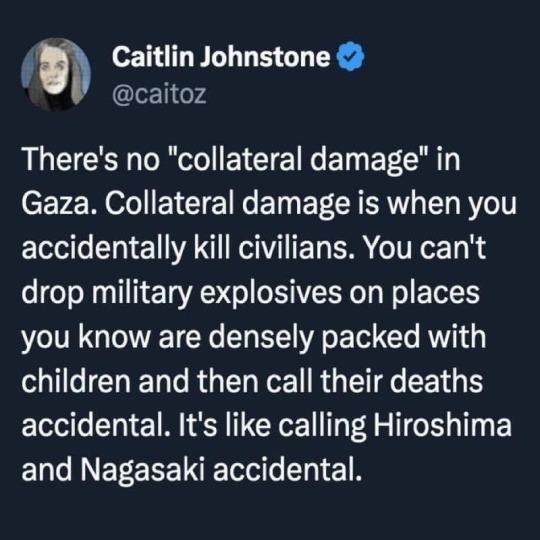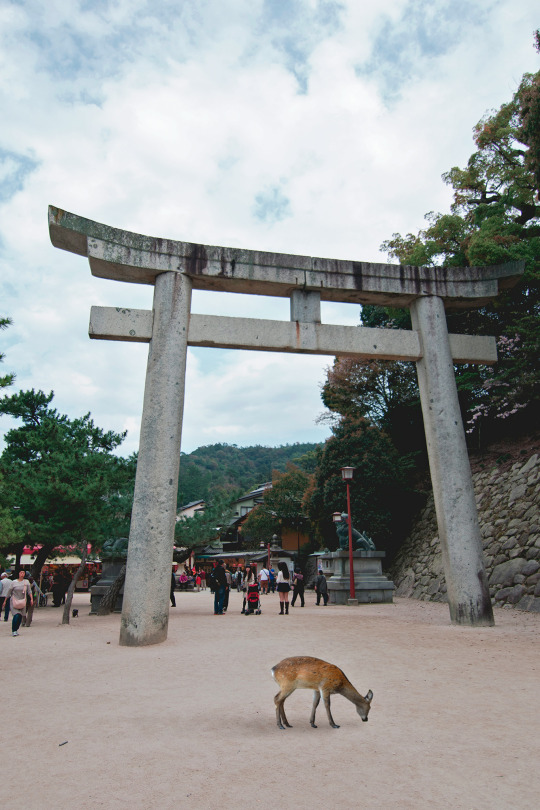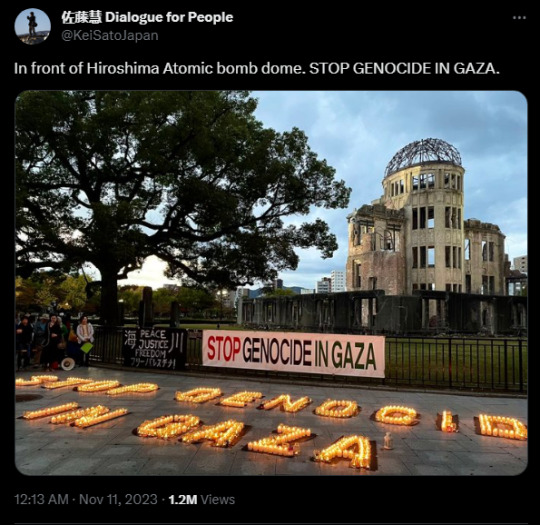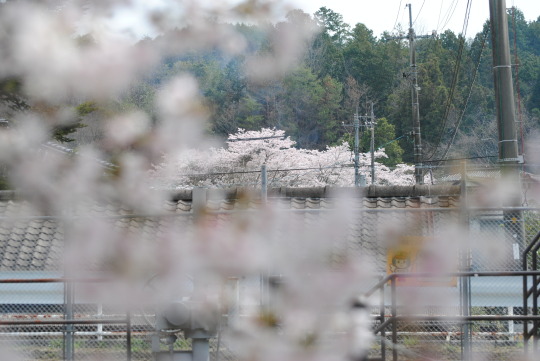#hiroshima
Text
The Morality Of Hiroshima And Nagasaki
A small debate has arisen in Conservative circles over the morality of the bombing of Hiroshima and Nagasaki. One side proclaims that the decision was evil because it targeted innocent civilians on a massive scale (regardless of how many lives it may have saved) and furthermore anyone who will not denounce the decision is evil themselves. The other side declares that it was a moral decision because it saved more lives than it claimed. Now one error that many critics of the decision seem to make is that they speak as though this was a choice between the deaths of the innocent civilians of these two cities, and the deaths of a larger number of armed troops on both sides. It was not. If it were it would be an easier decision.
The first thing that needs to be acknowledged is that, like contemporary discussions of slavery, this is a discussion of a different moral climate. Innocent civilians were not merely targeted by the hydrogen bomb but were regularly targeted by conventional bombs during the war in a way that would be entirely unthinkable today. Entire cities were bombed out. Hundreds of thousands of innocent civilians were killed in German cities alone. So the grim practical choice here was between years and years of more targeted conventional bombing of innocent civilians, or these two acts against Hiroshima and Nagasaki.
If I were personally sent back in a time machine and given the power to make this decision I could not, for I am a product of a different time. The question is whether or not, within the context of that time, this was the best decision. In my opinion it was for the time. Some will object to my claim that this was a different moral climate by pointing out statements of the era that express an awareness of the evil of targeting civilians. But we can do the same thing with slavery. Every single major founding father is on record condemning the institution of slavery as grossly immoral. This does not change the fact that it was a different moral climate; for in today's Western world the very notion of slavery is unthinkable.
The targeting of civilians was not some extreme deviation peculiar to World War 2 either. It was practiced in World War 1, and in most earlier wars, indicating that the extreme taboo against it presently is indeed a convention of the modern world.
39 notes
·
View notes
Text






Ishiuchi Miyako: 'Hiroshima' (2007)
Since 2007 Miyako has been photographing abandoned Japanese garments from victims of the 1945 Hiroshima bombing.
#Ishiuchi Miyako#hiroshima#hiroshima bombing#clothing#abandoned#destroyed#japan#photography#art#2007
2K notes
·
View notes
Text

If you’re not aware, Hiroshima and Nagasaki were deliberately not bombed with the firebombs that destroyed most of Tokyo and other Japanese cities in 1945 because they were two of a number of cities deliberately selected as locations for atomic bombings.
They wanted a “pristine” test of their new weapon on a previously undamaged city.
The US knew those cities were full of civilian refugees when they bombed them. They had herded them there.
Parallels, huh?
#historical parallels#atomic bombs#hiroshima#nagasaki#palestine#free palestine#gaza under attack#gaza ceasefire now#war crimes#genocide
975 notes
·
View notes
Text

Miyajima, Japan
875 notes
·
View notes
Photo

Tomonotsu Museum, Hiroshima
2K notes
·
View notes
Text

RIKEN YAMAMOTO
HIROSHIMA NISHI FIRE STATION, 2000
Hiroshima, Japan
Image © Tomio Ohashi
#riken yamamoto#pritzker prize#architecture#design#architect#art#designer#archdaily#artwork#photography#juliaknz#form#japanese architecture#urban#buildings#architectural space#hiroshima#japanese houses#material#transparency
168 notes
·
View notes
Text

#9034
Copyright © Takeuchi Itsuka. All Rights Reserved.
#film#filmphotograph#filmphotography#photography#photograph#フィルム#フィルム写真#streetphotography#streetphotographyjapan#photographer on tumblr#magazine35mm#35mm#hiroshima#japan#cityscape#cityphotography#alley#backstreet#fujifilm#pro400h
165 notes
·
View notes
Text


HIROSHIMA, JAPAN.
191 notes
·
View notes
Text

"First picture of results of atomic bomb." From the front page for the Gainesville Daily Register, Texas, August 13, 1945.
#hiroshima#nagasaki#history#japan#atom bomb#atomic#nuclear#military history#war#wwii#ww2#world war ii#second world war#world war 2
299 notes
·
View notes
Text
On This Day In History
August 6th, 1945: The first nuclear weapon used in warfare, the "Little Boy', is dropped on Hiroshima, Japan. It kills 70,000 people instantly and tens of thousands over the years.
315 notes
·
View notes
Text

György Korga (1935-2002)—Red Feathers. Remembering Hiroshima [oil on fibreboard, 1965]
221 notes
·
View notes
Text
Idk if this is a hot take or not but I feel the need to stress: no discussion about the bombings of hiroshima and nagasaki has any reason to mention Japanese war crimes. Literally nothing a government does justifies killing random people who happen to live in that government's territory. It is genocidal rhetoric to act as if a group of people can do something that justifes killing massive amounts of them.
There is an idea in western culture that we can judge warcrimes based on how "good" of a group were the victims. This dates back to the conquest of the Aztec empire, where things that horrified Europeans at the time where justified by bringing up terrible things done by the Aztec government. People defend the Spanish empire on those grounds today. It's so pervasive that it'll even come up when people are talking agaisnt genocides (they'll bring up native groups being peaceful as the reason why westward expansion was bad, as if them being human wasn't enough).
Would Russia be justified in nuking the US because the US government committed warcrimes in the middle east? (Actually speaking of Russia, you'll see this rhetoric when tankies bring up Ukraine's nazi problem.) Because if not, and you think hiroshima and nagasaki were justified, then you have to give a reason other then the fact that you judge the lives of westerners and nonwesterners differently.
If someone brings up crimes a group committed, real or imaginary, when arguing about atrocities committed agaisnt them, they've already told you that they don't believe people of that group have rights, that they believe anything can be done to them if it's justified.
There is no crime someone can commit, that's so bad that it justifies killing a stranger who happens to speak the same language as them.
#hiroshima#hiroshima and nagasaki#nagasaki#nuclear#nuclear weapons#nuclear war#racisim#anti genocide#genocide#world war 2#world war ii#history#discourse#war crimes#war criminals#imperialism#anti imperialism#oppenheimer#anti war
214 notes
·
View notes

